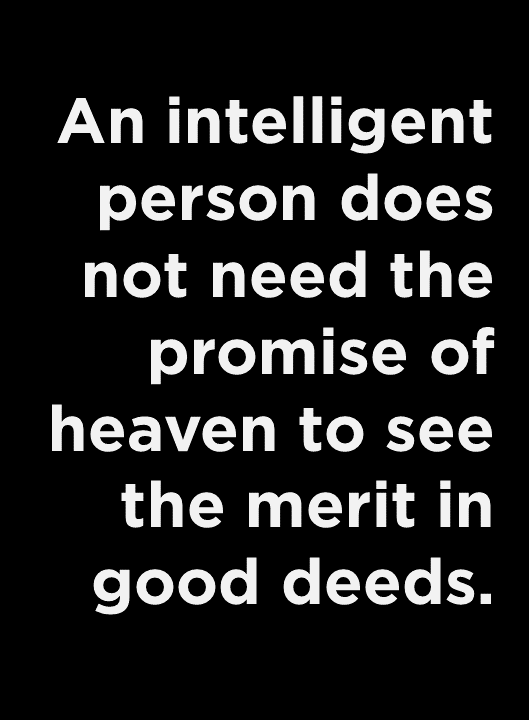On Twitter, recently, I got into an argument with a guy about the digital divide. The substance of the argument is unimportant. What’s important to this blog is the following exchange:
@johncloonan Said the Atheist. WTF? Done. Again, feel sorry for you
— Steve Sisko (@ShimCode) December 21, 2016
The implication here is that my atheism means that I enjoy watching other people suffer. Or, in a larger context, that as an atheist, I lack morals. This implication is a common practice among theist conservatives. From Greg Epstein, the Humanist Chaplain at Harvard: “Conservative authorities have, since ancient days, had a clever counterstrategy against religious skepticism—convincing people that atheism is evil, and then accusing their enemies of being atheists.” Sophistry at it’s finest.
I’d like to explain something about morals and religion. The fact that I don’t believe there is some higher power to which we all answer doesn’t mean I’m evil. It means I don’t believe in some higher power. I don’t need that belief to be moral. To quote Albert Einstein in the New York Times Magazine from 1930:
A man’s ethical behavior should be based effectually on sympathy, education, and social ties and needs; no religious basis is necessary. Man would indeed be in a poor way if he had to be restrained by fear of punishment and hopes of reward after death.
As mentioned by Einstein, it’s quite possible to form a moral code without religion. There are many different methods – consequentialism, utilitarianism, secular humanism. But even without “big word” philosophies, most of us can figure out right from wrong without any more guidance than what we received in kindergarten. Don’t hurt people. Be fair. Try to see things from the other side. Help other people. None of this requires religion. It requires a basic level of humanity.

1 thoughts on “Atheism and morality”